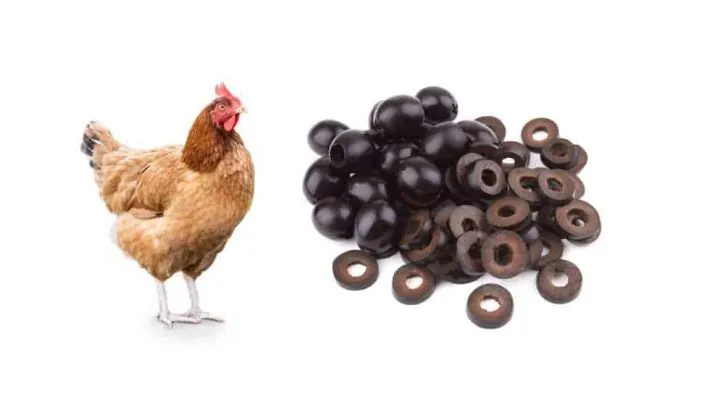There is no doubt that olives are a very popular fruit among humans. What makes them so loved is their taste, versatility, health benefits, and so on. But, posing the question can chickens eat black olives and enjoy them just as much as we can, is an understandable one.
Whenever it comes to feeding animals food that isn’t specifically created for them, it is only natural and responsible to be cautious and question if it is safe to do so, because we never want to cause any harm to them. In this case, I have good news for you – black olives, and all olives for that matter can be consumed by chickens!
However, before you allow them to do so, there are things you will need to know to ensure that your chickens enjoy the most benefits from eating black olives, whilst minimizing the potential risks.
So, if you want to find out how exactly to prepare and feed this amazing food to your chicks, keep reading!
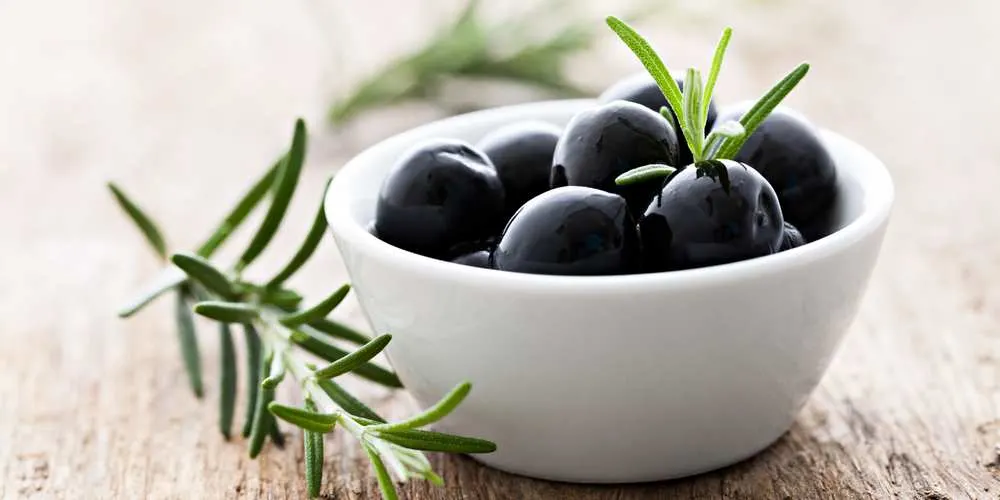
Everything Olives
Since you are here, it is safe to assume that you have wondered whether incorporating olives and specifically black olives into your feathery friends’ diet is ok. As we’ve established, this isn’t a mortal sin, nor will it hurt your chicken, but there are some bits of information you ought to know before doing so. So continue reading and perhaps jot down some vital facts.
Let’s get into it!
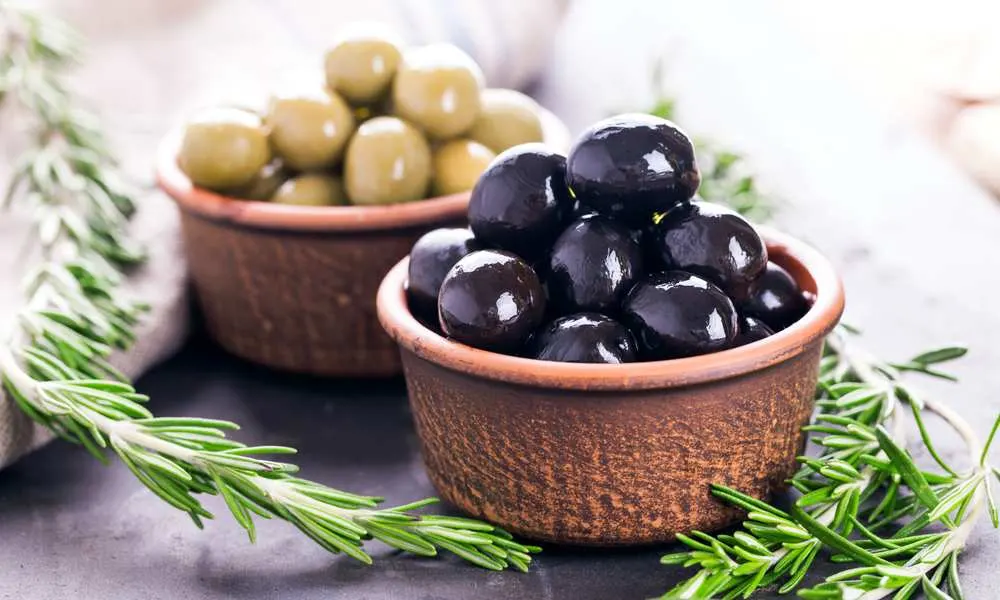
Black Or Green – What’s The Difference?
I know that I have asked myself this question more times than I can remember before actually deciding to look it up, so here I am now, saving you with this incredibly important piece of information.
The difference between green and black olives doesn’t have anything to do with the sort they are, or where they come from. The only thing it points to is how ripe the olives were, back when they were picked.
Green olives were picked before they were fully ripe, and black ones were ripe when picked.
When it comes to taste, us humans can certainly tell a difference between green and black olives. But can our poultry do the same? The answer is simple – no they cannot.
In addition to that, the nutritional content is alike, so that’s one less thing to think about – it’s all the same to them!
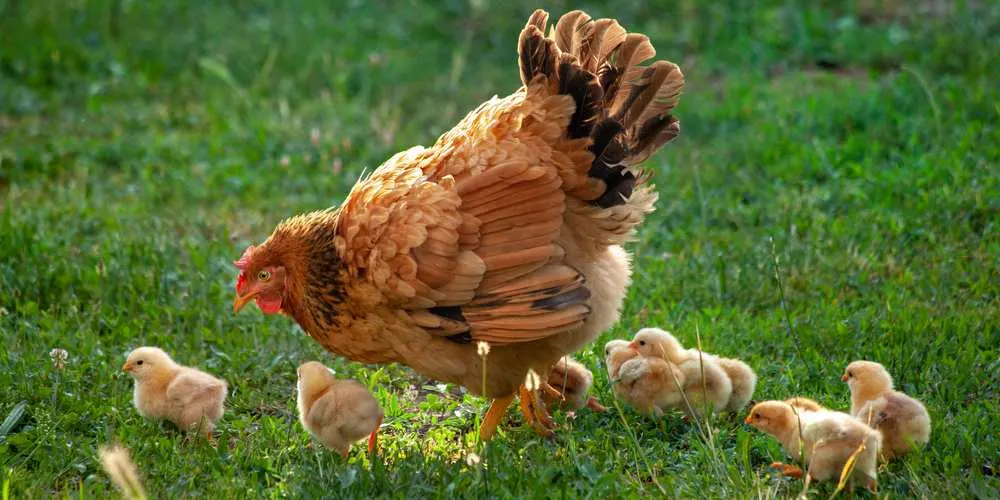
What Came First, The Olive Or The Pit?
Even though we’ve all gotten used to opening up a jar of delicious olives with nothing in the center, ready to be devoured, believe it or not, there once used to be a seed there! So, with that in mind, there are two parts of the olive that need to be looked at separately – the olive itself, and its stone.
The Olive
Black olives are a great source of many nutrients, for both humans and animals. Some of the most notable ones are vitamin E, calcium, copper, iron, etc. This makes them a great food to treat your chicks to, every once in a while.
- Vitamin E is an incredible antioxidant, which means that it helps your chicken’s body fight against free radicals that can cause oxidative stress. It is also extremely beneficial to the growth and development of young chickens. So, just this one vitamin makes olives an amazing food for your poultry.
- Iron is the main carrier of oxygen to all tissues in the body and it, among some other nutrients, is largely responsible for bringing energy to your hen’s brain and muscles. It is especially important for egg-laying chickens. With that said, keep in mind that too much iron can be the cause of blood poisoning, so try and find the perfect balance.
- Calcium, along with other elements, is a crucial facet of an adult, egg-laying hen’s diet – it enables the creation of eggshells. Aside from that, it is a necessary component for well-built bones, thus preventing injury and even in some cases osteoporosis.
- Copper holds beneficial effects for chickens, ranging from its antimicrobial properties to its role in proper bodily function and ensuring the optimal growth performance in chicks.
- However, you need to be wary of the high amounts of sodium that they usually contain, as a result of being packaged in salt water or brine. Sodium can induce salt poisoning in chickens, as they are not used to consuming it. So, if you can, my recommendation is to give your chickens fresh olives, rather than canned ones to avoid this.
| VITAMINS AND MINERALS | CHARACTERISTICS |
|---|---|
| VITAMIN E | Great antioxidant, helps in cell protection, important in growth and reproduction of chicken, supports nervous system |
| IRON | Helps maintain energy and focus, the immune system, gastrointestinal processes, creates hemoglobin |
| COPPER | Enables the body to create red blood cells, helps the body absorb iron, maintains healthy bones and nerves |
| CALCIUM | Aids in building strong bones and eggshells for laying hens, maintains proper function of the heart, muscles and nerves |
| SODIUM | Helps in preserving foods, can cause salt poisoning |
The Pit
When it comes to olive seeds, the answer to the question can chickens eat black olives is a little bit different. Generally speaking, there are no harmful or toxic substances within the seed.
However, that doesn’t mean you should run to feed it to your chickens just yet. While it is not dangerous for your chickens to eat an olive seed regarding its contents, it might still be unsafe for them to consume it for a few reasons.
First of all, it can cause a choking hazard. Even though chickens are quite smart, especially when it comes to knowing what they can and cannot eat, they can’t always make the distinction successfully.
When introducing new food to them the excitement might get the best of them, resulting in them swallowing something they normally wouldn’t have, in an inconvenient way. This can lead to a choking incident, and we know those are never fun.
The second reason why I would suggest you eliminate the pits before feeding olives to your hens is that it might lead to them developing an impacted crop. The reason this is dangerous is that it can prevent other food from passing through, eventually leading to starvation.
And lastly, removing the seeds before giving olives to your chickens will save you the effort of picking them up from your backyard later.
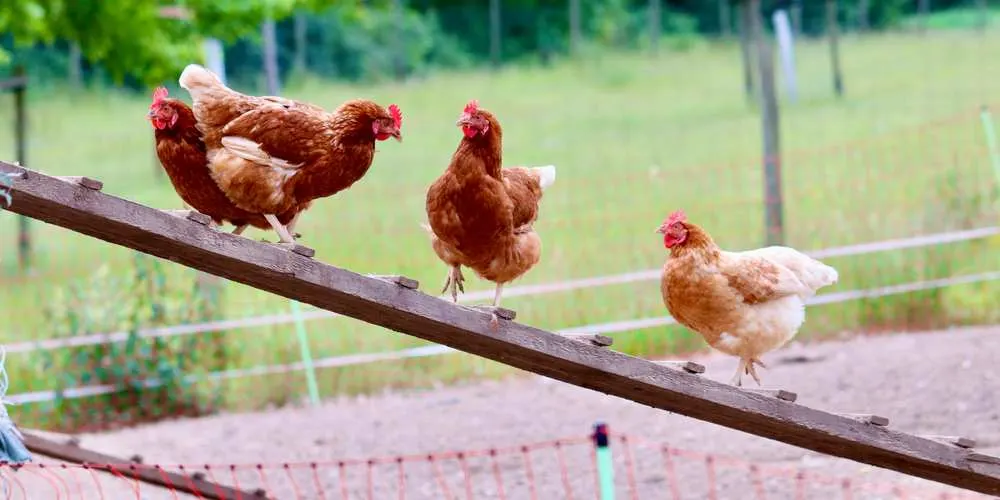
Ways To Feed Olives To Your Chickens
When it comes to the different forms in which you could serve olives to your hens, there isn’t much to think about. Olives are a simple fruit that can be eaten without much preparation. The way you give the olives to your chickens is mostly a matter of convenience.
However, one of the few things you should keep in mind when it comes to the olives you give them, is that pre-cured olives are better for hens. The reason is simple – less sodium.
The purpose of curing olives is to deal with their remarkably bitter flavor immediately after picking. That taste is very unappetizing to people, which is why the curing process was established – to neutralize it.
The good thing though, is that chickens don’t care about flavor the way that we do, so they will be happy eating the uncured black olives, which are also better for them. It’s a win-win situation!
There is also no need to cook them or do anything like that before giving chickens the olives. Simply throw the olives like you would do with their usual food, just make sure you have previously removed the seeds.
Also, make sure to limit the number of olives you allow your hens to consume, as they are high in fat, which needs to be kept in check when it comes to chickens.
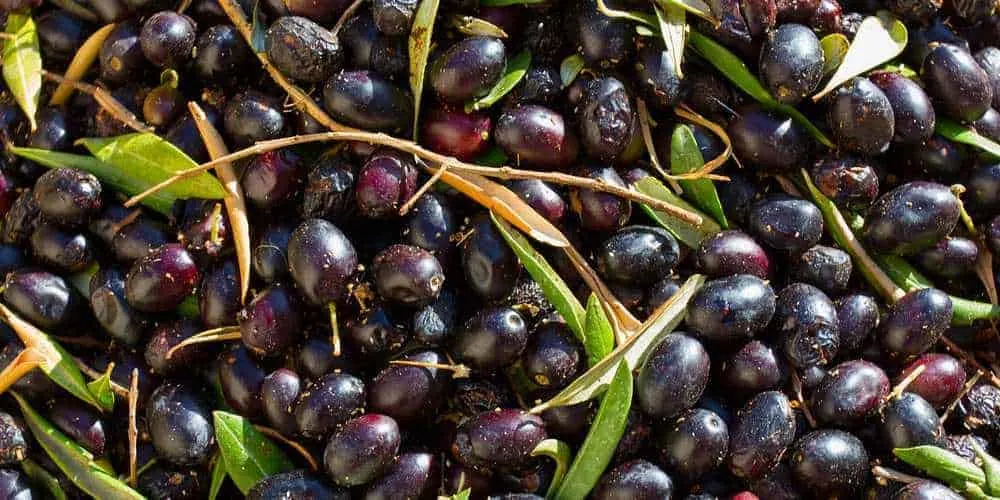
Can Chickens Eat Black Olives? – Final Thoughts
Finding tasty and healthy foods to incorporate into our animals’ diet is always exciting for us, and especially for our feathery friends. Just think of how happy you are when you find out that a new, delicious dish or a snack you’ve just discovered, is also good and nutritious for you. It’s some of the best news ever!
So, before you make your chicks’ day with some fresh black olives, let’s sum up the most important pieces of information regarding chicken and olives.
- The good: Black olives are a great source of nutrients that are necessary for your chicken to live a happy and healthy life and lay lots of eggs. They will diversify your hens’ diet and provide a bunch of benefits for them, all while making them happy.
- The not-so-good: Whilst olives are mostly safe for your chickens, you should keep track of the sodium levels they contain and, if possible, feed them pre-cured, unsalted ones. Aside from that, limit the number of olives you feed your hens, because of the high-fat levels found in them. In addition, beware of the seeds, as they might pose a health hazard.
Now that you are equipped with all the necessary information, go ahead and enjoy some black olives with your chicks!

